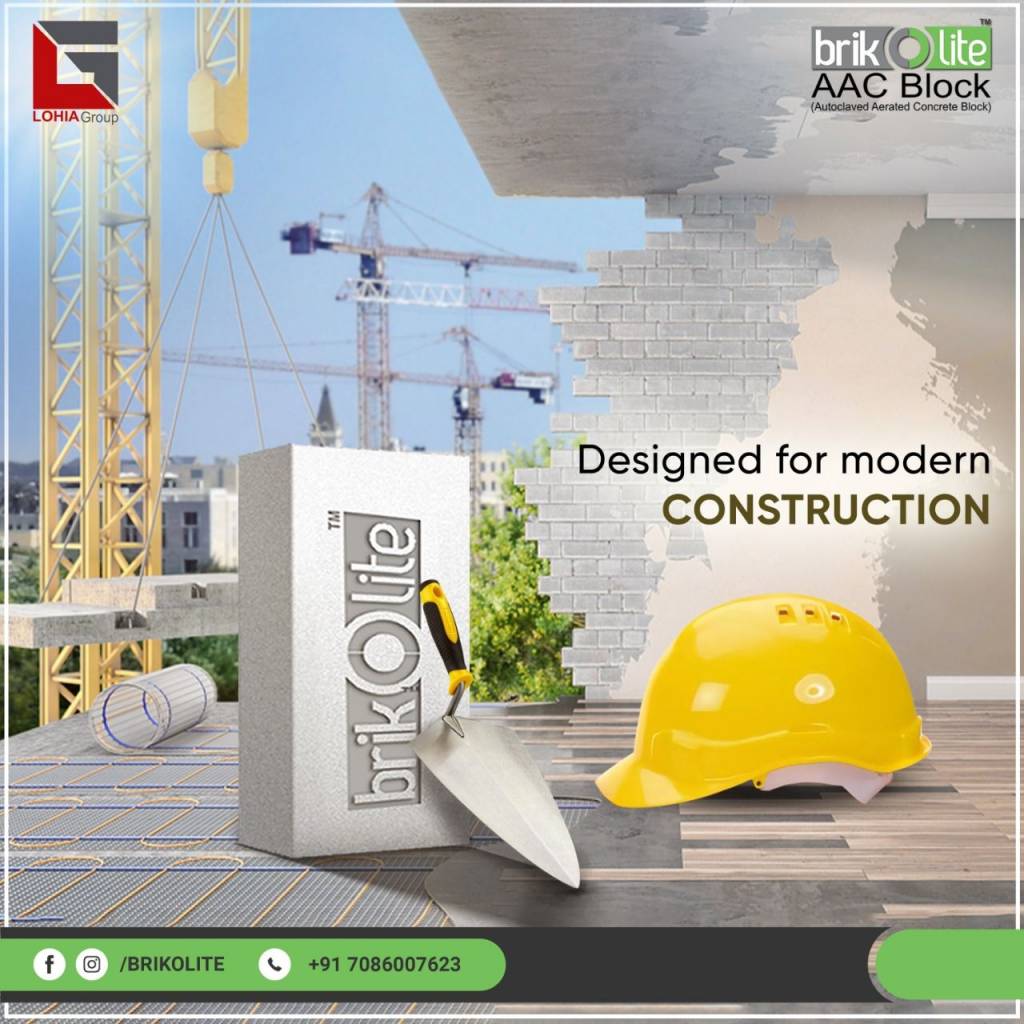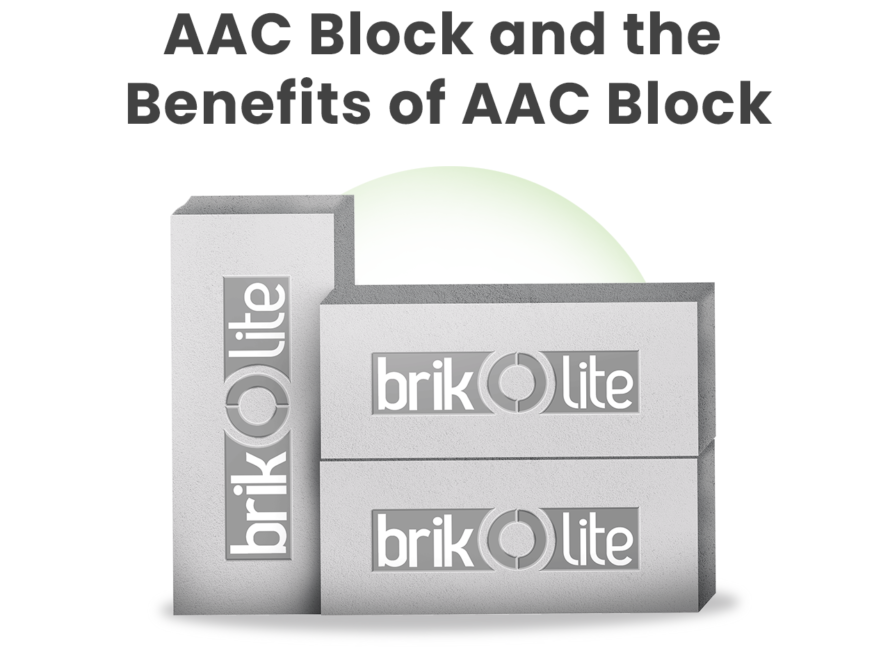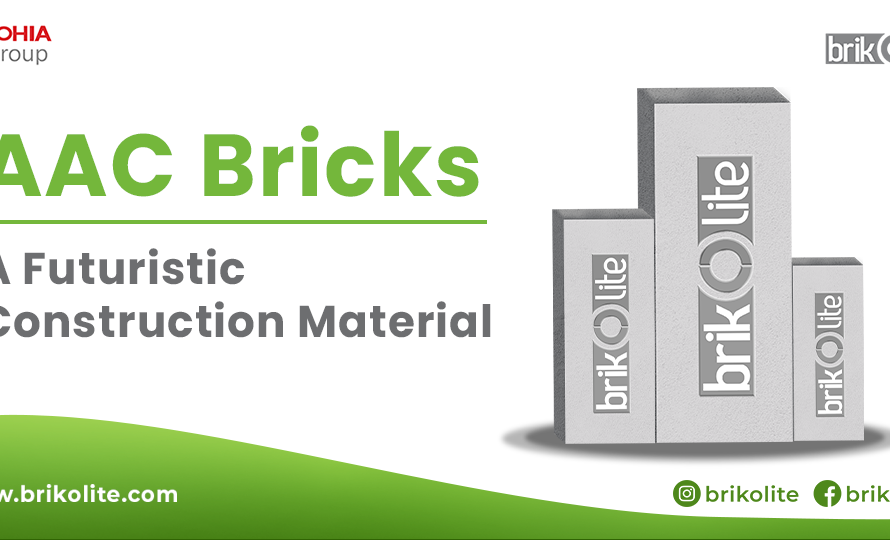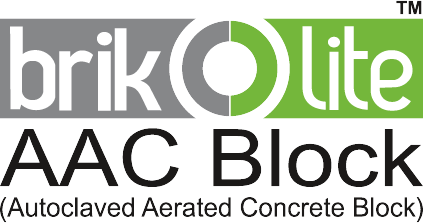
Autoclaved Aerated Concrete or AAC blocks are lightweight, precast, foam concrete building materials used for making blocks. It is a substitute for the traditional red bricks. Builders keep themselves aware of the latest trends and technologies, especially the sole construction materials like AAC blocks. New homemakers searching for construction materials must equip themselves to ask the right questions to the builders. A good understanding of construction materials and awareness about the ‘grade and quality of AAC blocks must come in handy. Builders must be aware and vigilant while making the final decision of constructing an establishment. With this background, let’s reveal the reasons why builders in India prefer AAC Blocks for construction purposes-
Reasons why builders in India prefer AAC blocks
AAC blocks are green-certified building materials that enhance the strength of an establishment. Therefore, the properties of AAC blocks will further facilitate the energy-efficiency and eco-friendly approach of construction.
The raw material used for AAC blocks manufacturing is fly-ash, a waste product generated from steel manufacturing units. In contrast, conventional blocks use cultivable soil that reduces the forest area. AAC blocks require less energy as compared with the traditional blocks and contribute towards better carbon emission footprints.
AAC blocks are a good substitute for conventional bricks in terms of material wastage and sustainability. The frequent use of natural soil leads to soil erosion, whereas AAC blocks use eco-friendly & recyclable substances like fly-ash.
AAC blocks reduce water consumption significantly because they require less water during the construction process.
AAC blocks contain 50% to 60% of air, leading to lightweight and low thermal conductivity, which result in eco-friendly and energy-efficient products. As a result, they are ideal materials for homes, especially for chemically sensitive beings. They are also helpful in green housings and saves fertile land from fly-ash disposal.
AAC blocks have significant advantages over other construction materials, which ensures their longevity and insulation capacity. It reduces environmental waste by approximately 30%. While evaluating its impact on nature, AAC blocks are a better choice for construction also for the environment.
Conclusion
AAC blocks strictly follow sustainable and environmental-friendly practices and opt for recycled waste; form the green product. With environment-friendly AAC blocks, you will build a beautiful house without hampering the environment. Using these blocks will keep your establishment well protected from weather conditions while providing sustainability from all aspects.
About the brand
Brikolite is the premium AAC block manufacturer in the North-eastern region. They are lightweight, load-bearing, high-insulating, and durable building products. These blocks are smoothly available and very handy for construction purposes. Hence, Brikolite AAC blocks are the smartest choice for your construction project. Brikolite AAC blocks are available in Guwahati, Jorhat, Golaghat, Sivasagar, Tinsukia, Dibrugarh, Itanagar, Shillong, Aizawl, Imphal, Agartala Dimapur, and Kohima. It provides environmentally friendly bricks for your dream home. For further details, kindly contact our expert.





3 Comments
Israel
Simply want to say your article is as astonishing.
The clarity in your post is just excellent and i could assume
you’re an expert on this subject. Fine with your permission allow me
to grab your feed to keep updated with forthcoming post.
Thanks a million and please continue the gratifying work.
venkataratnam
Nice piece of information you have shared with us on aac blocks. You’re doing a great job and Thanks for sharing.
sanjay Roy
Good information on AAC blocks industry
Comments are closed.